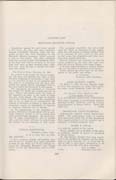
[p. 285]
CHAPTER XXIV
MOUNTAIN MEADOWS AFFAIR
Conspicuous among the news items carried in The News, The Star, and other contemporaneous periodicals affecting Utah and her people at this time were references to the Mountain Meadow massacre, which occurred a year or two before. The other unrelated items are inserted in their chronological order, in the hope they will be no more in the way than they were in their original place when first run. They all help to picture the conditions and times.
The Deseret News, February 16, 1859
We present to the people the Deseret Alphabet, but have not adopted any rules to bind the taste, judgment or preference of any. Such as it is you have it, and we are sanguine that the more it is practised and the more intimately the people become acquainted with it, the more useful and beneficial it will appear.
The characters are designed to represent the sounds for which they stand, and are so used. Where one stands alone, the name of the character or letter is the word, it being the only sound heard. We make no classification into vowels, consonants, &c., considering that to be of little or no consequence; the student is therefore at liberty to deem all the characters vowels, or consonants, or starters, or stoppers, whatever else he pleases.
In the orthography of the published examples, Webster's pronunciation will be generally followed, though it will be varied from when general usage demands. All words having the same pronunciation will be spelled alike, and the reader will have to depend upon the context for the meaning of such words. . . . .
INDIAN HOSTILITIES
Executive Office, Utah:
G. S. L. City, Feb. 14, 1859.
MR. EDITOR:—I have received reliable information that several acts of hostility have been committed recently by the Piede and Pi-Ute Indians between the "Mountain Meadows" and "Santa Clara" on the San Bernardino route to California.
The necessary requisition has been made upon the officer in command of this department, who will detach a suitable military force to be stationed at such points on the route as will secure the emigration and other travelers from Indian hostilities.
General Johnston has informed me that the troops assigned to this duty will move soon after the first of March from Camp Floyd.
J. Forney, Superintendent of Indian Affairs, will visit the tribes in advance of the troops.
Please publish the above note for the information of the public, and oblige,
A. CUMMING, Governor Utah Territory.
FIRST MASONIC LODGE
On March 6, 1859, the first Masonic Lodge in Utah was organized at Camp Floyd, under the name, Rocky Mountain Lodge No. 205.
The Deseret News, March 9, 1859
ALEXANDER WILSON
U. S. ATTORNEY FOR UTAH TERRITORY
Will attend promptly to professional business intrusted to him. OFFICE—with Dr. Forney, Superintendent of Indian Affairs. Great Salt Lake City. 51-3m
IMPORTANT ANNOUNCEMENT!
PLEASANT GROVE ROPE MANUFACTORY. The undersigned wishes to respectfully inform the public that he has commenced Rope manufacturing in all its branches and is prepared to furnish customers with
ROPES & TWINE
of a superior quality at fair prices.
FLAX, HEMP, OX & HORSE HAIR taken in exchange, worked on shares or purchased at liberal prices.
He also flatters himself from long experience in the business in England and the abundance of good material now on hand that he will be able to give entire satisfaction to all who may favor him with their patronage.
WM. O. OWEN, 50-3m Pleasant Grove City.
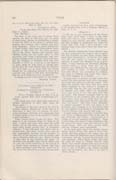
[p. 286]
The L. D. S. Millennial Star, No. 19, Vol. XXI,
May 7, 1859
President's Office. Great Salt Lake City, March 10, 1859. Elder A. Calkin. Dear Brother,—. . . .The bulk of the army are at Camp Floyd passing the time as best they can—an army of observation, among so law-abiding a people, having but little to do except to attend drill, prepare and consume their rations, and hunt after deserters. There is a small detachment in Juab County with some Government stock, another in San Pete for the same purpose, one at the Sevier Bridge, and another near Chicken Creek, on the south route, to stop deserters; and Judge Cradlebaugh, who commenced holding court in Provo on the 8th inst., has one company of Infantry with him, professedly to serve as a lock-up in the absence of jails, when he well knew or should have known that the civil officers were all sufficient for such duty, or at least that the troops should not be quartered around a court in a peaceful city until it had been demonstrated that the civil authorities were insufficient. . . . .
I remain, as ever, your brother in the Gospel,
BRIGHAM YOUNG.
The Deseret News, March 16, 1859
(Reporter)
DISTRICT COURT. 2nd JUDICIAL DISTRICT
Provo, Tuesday, March 8, 1859, 11 a. m.
Court opened, Hon. John Cradlebaugh presiding. . . . .
The grand jury were called into court to be further instructed in their duty, when his Honor said:—
"Gentlemen of the jury, there is one of your number absent, (Martin H. Peck) and it is important to have you all present in transacting business; however, it is important that I should speak to you of the manner of transacting business. . . . .
Some United States troops are here. Perhaps it is an unusual thing for them to be here. I knew that there were those who were guilty, out by the camp, and also that there were many guilty around here, of numerous offences. I was informed that there was no prison here, and those troops were sent by the commanding General, at my request, to take care of the prisoners now in custody, and not to interfere with any one. They are here to take care of and preserve the peace. If prisoners are brought they will be taken care of, and the whole authority of the troops is to detain those persons in custody that may be taken prisoners, until they are called for by the court, and they have no power beyond that. . . . .
CHARGE
Orally delivered by Hon. John Cradlebaugh to the Grand Jury, Provo, Tuesday, March 8, 1859, 11 a. m.
(Reporter.)
I will say to you, Gentlemen of the Grand Jury, that, from what I learn, it has been some time since a court, having judicial cognizance in your district, was held. No person has been brought to punishment for some two years; and from what I have learned I am satisfied that crime after crime has been committed. . . . .
The persons committing those offences have not been prosecuted, the reasons why I cannot tell, but it strikes me that those outside influences have prevented it. If you do your duty you will not neglect to inquire into those matters, or allow the offenders to go unpunished. I may mention the Mountain Meadow murder, where a whole train was cut off, except a few children who were two young to give evidence in court. It has been claimed that this offence was committed by Indians, but there is evidence that there were others who were engaged in it besides. . . . .
A large body of persons leaving Cedar city, armed, and after getting away were organized, and went and returned with the spoils. Now there are persons who know that there were others engaged in the crime; I brought a young man with me who saw persons go out in wagons with arms, others on horseback, were way a day or two and came back with the spoil. The Indians complain that in the distribution of the property they did not get their share, they seem to think that the parties engaged with them kept the best and gave them the worst. The chief there (Kanosh) is equally amenable to law, and liable to be punished, and I suppose it is well-known that he was engaged in assisting to exterminate the hundred persons that were in that train. . . . .
I might bring your attention to another case, near here, at Springville; that is the case of the Parrishes and Potter. Springville is a village of several hundred inhabitants. There is one young man whom it was intended to kill. He ran to his uncle's, and was followed to his uncle's house. Here are three persons killed, and the criminal goes unpunished. . . . . .
At the same place there was another person killed; Henry Fobbs, who came in from California and was going to the States, but got in here when the difficulties arose between this community and the General Government, and was detained. When Henry Fobbs was here, he made his home at Partial Terry's, staid there a few weeks; during that time his horse and revolver were stolen; he made his escape, tried to get to Bridger, was caught, brought back and murdered; and that is the last of Henry Fobbs. . . . .
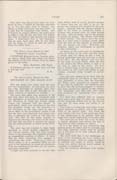
[p. 287]
Then there was Henry Jones that was murdered up here; I believe he was first castrated up in the city, then went to Payson, was chased to Pond Town and was shot there. It is said that he committed some offence. But if persons do commit offences, the public have no right to take the law into their own hands; they have no right to take persons and punish them. I understand that he was castrated; that he came down here, that he was killed and the house in which he and his mother lived was pulled down. . . . .
The Deseret News, March 23, 1859
TOBACCO LEAF WANTED
I PURPOSE Manufacturing Chewing tobacco, Cigars, Snuff, Fine and coarse Cut Smoking tobacco, in all their variety, from the plant grown in the valley.
BENJ. HAMPTON, 16th Ward.
If Farmers will put in crops, they will find it will pay well.
51-5 B. H.
The Deseret News, March 30, 1859
DISCHARGE OF THE GRAND JURY. . . .
This day makes two weeks from the time you were impannelled. At that time, the court was very particular to impress upon your minds the fact that it was desirable to expedite business as speedily as possible. . . . .
The court also called your attention to the fact that there had been, in connection with this legislation, an attempt by persons within the Territory to bring the United States Courts into disrepute with this people. It particularly called your attention to the fact that Brigham Young, the late Executive of the Territory, at the time when he was a sworn officer of the government—sworn to see that the laws were executed—had taken occasion to denounce the courts as vile and corrupt; also that he had taken occasion to denounce all attorneys and jurors of the court, and that this was (lone to prevent the proper and due administration of justice in the Territory. . . . .
The court has had occasion to issue bench warrants to arrest persons connected with the Parrish murder; had had them brought before it and examined; the testimony presents an unparalelled condition of affairs. It seems that the whole community were engaged in committing that crime. Facts go to show it. There seems to be a combined effort on the part of the community to screen the murderers from the punishment due them for the murder they have committed.
I might call your attention to the fact that when officers seek to arrest persons accused of crimes they are not able to do so; the parties are screened and secreted by the community. Scarcely had the officers arrived in sight of the town of Springville before a trumpet was sounded from the walls around the town. This, no doubt, was for the purpose of giving the alarm. The officers were there to make arrests. The officers leave the town, and in a short time a trumpet sounds again from the wall for the purpose of announcing that the danger was over. Witnesses are screened; others are intimidated by persons in that community.
An officer of this court goes to Springville, meets the Bishop of the town, asks him about a certain man, for whom he has a writ, he having understood that the man was a scribe in his office. He (the Bishop) tells him that he has gone to Camp Floyd, while the fact is, the person the officer desires to find is at the time in sight in the street. We have here a Bishop lying to prevent the service of the process of this court, and aiding in preventing criminals being brought to punishment. . . . .
Such acts and conduct go to show that the community there do not desire to have criminals punished; it shows that the Parrishes and Potter were murdered by counsel, that it was done by authority; the testimony goes to show that the persons engaged in committing these murders are officers in that community, policemen, and that they have since been promoted for committing these hellish crimes. . . . .
You have had sufficient time to examine those cases; more than two days ago, you had all the testimony before you in the Parrish case and for some cause you refuse to do anything.
Your duty is to find bills when there is sufficient testimony to satisfy you of the probability of the party's guilt. The Court has been patient with you; it has given you time; it has endeavored to be patient, that you might have ample opportunity to do your duty.
The court has no desire but to do its duty; to punish offenders and enforce the law—it can have no other purpose or motive.
If it is the desire of this community that persons guilty of crimes shall be screened, and that high, notorious crimes shall be covered up, it will have to be done without the aid of this court. . . . .
The court feels that it has discharged its duty; it has furnished you every facility for discharging yours. Still, you make no report; to continue you longer in service would be wrong—the public interest would neither be promoted or benefited by it.
You are therefore discharged from further service. . . . .
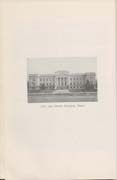
[p. 288]
CITY AND COUNTY BUILDING, PROVO
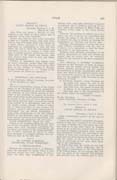
[p. 289]
(Reporter)
COURT DOINGS AT PROVO
Saturday Morning, 9 A. M.,
March 26, 1859.
John Winn and Justin J. Merrill, of Lehi, relative to the death of Jacob Lance, late of American Fork, were examined.
Report says that the man Lance committed a rape on a Danish woman, near Lake City; that he was afterwards taken into custody by a police officer, conveyed to Lehi, where he underwent an examination in part, but that before the day to which the examination was adjourned arrived, a woman, or small built man, in female apparel, rushed into the room, while part of the guard was absent, split open Lance's head with an axe, and disappeared immediately.
Nothing of importance was elicited from the above witnesses, further than that Lance was, on the evening that he received the fatal blow, in the custody of Alonzo P. Rhodes, George Coleman and —— (Name of the third person not heard by reporter.) . . . .
MEMORIAL AND PETITION
To his Excellency Alfred Cumming, Governor of the Territory of Utah.
Sir:— . . .
We, your memorialists, citizens of the United States in the Territory of Utah, respectfully petition your Excellency to use all the influence and authority of your official position as Governor of this Territory to remove all government troops from in and around the court now in session in the city of Provo and from in and around said city, and to prevent any troops being located in or infringingly near any of our thickly settled villages, towns, or cities, and to fairly and fully, at your earliest convenience, report to the proper Department in Washington city the official proceedings of Judge John Cradlebaugh, in the 2nd Judicial District of this Territory, and, for such wise, loyal, and just action by your Excellency, your memorialists and petitioners will ever pray.
UTAH TERRITORY, March 22, 1859.
Copies of the foregoing Memorial and Petition to His Excellency Alfred Cumming, Governor, have been circulated throughout the Territory, and signed by the people generally; one of which contained the names of about three thousand five hundred citizens, was presented to him on the 25th inst.
BY ALFRED CUMMING,
GOVERNOR, UTAH TERRITORY.
A PROCLAMATION
Whereas, one company of the U. S. Infantry, under the command of Captain Heth, is now stationed around the Court House at Provo, where the Hon. John Cradlebaugh is now holding court, and eight additional companies of infantry, one of artillery, and one of cavalry, under the command of Major Paul, are stationed within sight of the Court House; and,
Whereas, the presence of soldiers has a tendency, not only to terrify the inhabitants and disturb the peace of the Territory, but also to subvert the ends of justice, by causing the intimidation of witnesses and jurors; and,
Whereas, this movement of troops has been made without consultation with me, and, as I believe, is in opposition to both the letter and spirit of my instructions; and,
Whereas, Genl. Johnston, commander of the military department of Utah, has refused my request that he would issue the necessary orders for the removal of the above mentioned troops:
Now, therefore, I ALFRED CUMMING, Governor of the Territory of Utah, do hereby publish this my solemn protest against this present military movement, and also against all movements of troops, incompatible with the letter and spirit of the annexed extract from the instructions received by me from government for my guidance while Governor of the Territory of Utah.
In testimony whereof, I have hereunto set my hand, and caused the seal of the Territory to be affixed. Done at Great L. S. Salt Lake City, this twenty-seventh day of March, A. D. eighteen hundred and fifty-nine, and of the Independence of the United States the eighty-third.
ALFRED CUMMING.
By the Governor:
JOHN HARTNETT, Secretary of State.
The Deseret News, April 6, 1559
(Reporter)
COURT DOINGS AT PROVO . . . .
Saturday, (April 2, 1859.)
Judge Cradlebaugh summed up the case as follows:
I must say that until I commenced the examination of this case, I supposed we were living in a land of liberty—in a land where any person could go to any place where he thought proper to go; I had also thought that we lived in a land of religious toleration, where persons were allowed to worship God according to the dictates of their own consciences, but the evidence that has been introduced shows, at least, that the people, so far as the Territory of Utah is concerned, do not enjoy those blessings of the Constitution.
It would seem that the people are not only deprived of their liberty religiously, but of that which is guaranteed by the Constitution of the United States. If, for example, they fall from the faith of the religious denomination that prevails here, the evidence goes to show
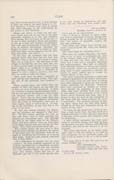
[p. 290]
that their throats must be cut; if they attempt to leave the country the same thing is to follow; therefore, I think I am right in saying that these blessings of the Constitution do not accrue to this Territory.
(When and where, in Utah, has any person's throat been cut, or any one in the least personally injured, or in any way hindered from leaving this Territory, on the ground of his, her or their apostacy? Never and nowhere, so far as a long and intimate acquaintance with civil and ecclesiastical territorial affairs gives us reliable information, 'therefore' the Judge's 'I think I am right' is widely at variance with what we are sanguine are the facts upon this point.—Ed. News.) . . . .
In this case, the testimony that has been adduced shows that there has not been that toleration that is right for the people to enjoy. Why, let us look at it. We find here, in the village of Springville, but two years ago, two or three persons make up their minds to leave there; there is no complaint of their having done anything wrong, except a complaint in regard to their religious opinions, and that they are going to leave the place.
(How could there be shown 'complaint of their having done anything wrong,' when only one side of the testimony was examined?—Ed.)
Those persons leave, and before they are outside of their own homes, we find that two of them are most brutally murdered. A third one is killed, I suppose unintentionally killed—but two we find are murdered in a most brutal and inhuman manner, and I say for what cause? There was no other cause than that those persons entertained different sentiments from the people in Springville; there was no other reason, cause or motive for it. In looking at the testimony, we say that this is the state of the facts.
We find that Bishop Johnson, the Mayor, and the policemen are engaged in that murder. We find council meetings are held, as they call them; that in those meetings the murders are determined upon. The meetings are held in the upper room of the Bishop's house, and those persons' lives are determined to be taken because they are leaving the Territory. Now, there is no doubt about this. . . . .
The evidence before the court goes to show that the entire officials, the Bishops, the justice of the peace, and the policemen, were all engaged in murdering the Parrishes, or in laying their plans. Some are more directly connected with it than others.
(How differently do persons view the same evidence! We have carefully examined all the evidence furnished by a remarkably accurate phonographic reporter, and can only conclude that 'the evidence before the court goes to show' that Durfee, Potter and two of the Parrishes got into a row about matters best, if not only, known to themselves, and that Potter and two Parrishes were killed.—Ed.). . . .
(Provo, Utah.)
Monday, April 4—8:30 a. m.
Court met as per adjournment.
Case of Alvira L. Parrish vs. Aaron Johnson; writ of attachment returned—having been served, Sunday the 3d, on defendant's flouring mill. On motion of plaintiff's council, the case was continued.
John Daley and Hosea Stout having executed a bond of $1,000. Mr. Daley was released on parole.
The Court made the following entry:—
This court has sought diligently, and faithfully to do its duty, to administer the laws of the United States and of this Territory. It could not have any other object. But at every turn it has had to encounter difficulties and embarrasments. Men high in authority in the Mormon Church, as well as men holding civil authority under the territorial government seem to have conspired to obstruct the course of public justice, and to cripple the earnest efforts of the court.
The whole community presents a united and organized opposition to the proper administration of justice; every art and every expedient have been employed to cover up and conceal crimes committed by Mormons. Witnesses have been prevented by threats of violence from obeying the summons of this court; others that have testified have been driven to seek safety in the protection of the United States troops stationed near here, who, it is proper to say, are here on the requisition of the court, and for whose presence the court is responsible. The absolute necessity of having these troops here has been fully demonstrated by all that has transpired during the session of the court.
To crown all, the grand jury, sworn to perform a high public duty, has lent itself as a willing instrument to this organized opposition to the laws of the country and refused to meet its obligations.
A most willing inclination has been manifested to prosecute Indians and other persons, not Mormons, for their offences, while Mormon murderers and thieves are allowed to go unpunished.
This court determined, as its action manifests, that it did not intend to be used by this community for its protection alone, but that it will do justice to all, or it will do nothing.
Not being able to do this, the court now adjourns without day.
JNO. CRADLEBAUGH,
Associate Justice, Sup. Court,
Ex-Officio Judge 2nd Jud. Dist.
A true copy.
Lucius N. SCOVIL, clerk.
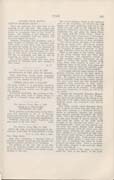
[p. 291]
LETTER FROM MANTI
EDITOR DESERET NEWS:— . . . .
Tintic the notorious Ute chief died on the morning of the 15th inst. The Indians had a big pow-wow on the occasion, and killed eight horses to accompany him to the world of spirits. The citizens of this Territory who have been acquainted with his history will not much deplore his death.
Arapene, Peteetnete and Sandpitch with a large number of Indians are encamped four miles south of this place, they are a heavy tax upon the people as they are destitute of food, and have to be fed by the citizens; they are waiting for the superintendent, Dr. Forney, to visit them, but hope that his coming will not be prolonged, and that he will do something to relieve their necessities.
The United States troops that have been quartered at Ephraim have been ordered to other points. . . . .
G. P.
The Deseret News, April 20, 1859
OPPOSITION IS THE LIFE OF TRADE!
THE Subscriber having made important improvements in the manufacture of WHISKEY, is now enabled to sell it at
THREE DOLLARS A GALLON
His large rectifier is in successful operation, and he can now recommend it to the public as the most superior article ever brought into this market.
WILLIAM HOWARD, Big Cottonwood Distillery, three miles south of Sugar House, or at Mr. G. Clements', Great Salt Lake City. 5-4
The Deseret News, May 4, 1859
THOMAS S. WILLIAMS ATTORNEY AT LAW
WILL practice in all the courts of the Territory, and especially in the U. S. District Courts, and Supreme Court. He will give efficient attention to all professional engagements.
OFFICE—East side of East Temple st., one door north of the Post office. 9-3m
The Deseret News, May 11, 1859
VISIT OF THE SUPERINTENDENT OF INDIAN AFFAIRS TO SOUTHERN UTAH
G. S. L. City, May 5, 1859. Hon. Elias Smith:
Dear Sir:—Yesterday I returned from a laborious, though interesting trip through the extreme southern portion of the Territory.
The purpose of my visit was to see and learn the condition, locality and character of the Pi-ute tribe of Indians and to bring certain children to this city.
The Pi-ute Indians, living in the southern part of the Territory, are divided into ten bands, each band numbering from 60 to 150, which live and roam on and adjacent to the Southern California road, from Beaver to the California line, and along the Santa Clara, Los Vegas, and the Virgin rivers. There is one principal chief, whose name is Tut-se-guvvit, whom all the bands recognize as their head. Each band has one or more sub-chiefs.
I saw all the chiefs, and many of the Indians during my recent visit. The Pi-ute Indians are not an exception to the other Indians in the Territory in regard to poverty; if there is any difference, these are the most destitute. There is less game in the country claimed by the Pi-ute Indians than any other part of the Territory. The vegetation consists in a few scrubby cedars; cottonwoods on the banks of rivers; the cactus, bearing large pods, which, when roasted in ashes, are of indifferent taste; a few roots; some grass and weeds, the seeds of which are carefully gathered; and a peculiar shrub, called mesquite.
A few hands cultivate small patches of land; already, however, most of the land, which is advantageously located for irrigation, is occupied. By begging from the whites, and all sort of shiftings, these Indians merely sustain life; and I very much fear that necessity has compelled them heretofore to steal cattle, horses and mules, and to commit the many crimes too fresh in our memory. I will render them such assistance, in future, as will be in my power. . . . .
I reached the memorable Mountain Meadow valley, 300 miles south of this city, Wednesday, April 14, and nooned at the spring in the south end of the valley, where the unfortunate emigrant party was encamped from five to eight days.
This valley, usually called Mountain Meadows, is about six miles long and from one to three wide, running in a southerly direction, almost a continuous meadow, and excellent grass already growing throughout the whole valley. The road leading into the valley from the east goes through a narrow kanyon; the road from the valley on the south turned abruptly to the eastward and passes over a considerable hill. There are two narrow outlets from the valley, besides those already mentioned, through which the water runs. The entire valley, excepting the roads and outlets above alluded to, is surrounded by high hills, with several small ravines or gulleys between broken and abrupt hills. From several points within the valley proper I could have a distinct view of anything that might be transpiring in the whole valley. There is one house in this valley, situated in the east end, where there is a corral, &c. . . . .
About the centre of the valley, in what is called the "Rim of the Basin," or the point

[p. 292]
where the water either finds its way to the Pacific or lakes of Utah Territory. . . . .
I informed my then guide and interpreter (Mr. Ira Hatch) that I was anxious to see the spot where the massacre took place, and also where the dead were buried. I saw the three places where the dead are buried.
Information received from persons in and out of the Mormon Church, and observations whilst at the place, enables me to say that the emigrant party in question arrived and camped at the spring in the south end of the valley, Friday, Sept. 7th or 8th, 1857. The amount of property is estimated at from 200 to 700 head, with from ten to thirty wagons. My own impression is, that they had 600 head of cattle and about 40 wagons.
It is said the firing commenced on Monday, Sept. 10, before daylight, and that the firing was by the Indians fighting the said emigrant party then in camp at the spring, as already stated. The firing was continued, some say five, others say seven days.
During the five or seven days of firing and fighting by the Indians, the emigrant party was corralled, that is, they made a corral and temporary fort by their wagons, and filled under the wheels and to the bed of the wagons with sand and earth dug in the centre of the corral. I saw the ditch and other evidences of there having been a corral. Sept. 17th, 1858, in the morning, a friendly Indian and one who could talk English, came into the corral. The emigrants having then been without water from five to seven days, made arrangements or treaty with said Indian—in which the Indians were to have the property, spare the lives of the whites, and permit them to return to Pinto Creek and Cedar city. From the spring and corral to the place where it is said they were murdered, and where I saw the graves (or imperfect holes) is at least one mile and a half.
I walked over the ground where it is supposed they were killed—the evidences of this being unmistakable from skulls, and other bones and hair laying scattered over the ground. There are there buried, as near as I can ascertain, 106 persons, men, women and children; and from one to two miles further down the valley, two or three who, in attempting to escape, were killed, partly up the hill, north side of the valley, and there buried, and three who got away entirely, but were overtaken and killed at or near the Vegas or Muddy; in all 115. I made strict and diligent inquiry of the number supposed to have been killed, and 115 is probably about the correct number.
April 15th.—Arrived at Santa Clara this afternoon, and camped in town. Here I met Mr. Jacob Hamblin, who has been in my employ since last fall, collecting certain children, and other business among the Indians. Here Santa Clara) myself and party were kindly treated during our stay—two days.
I say in the beginning of my letter that I purposed bringing to this city certain children remaining of the Mountain Meadow massacre. These children, sixteen in number, I have now in my possession. Thirteen I got in Santa Clara, at Mr. J. Hamblin's, who collected them in pursuance to my directions, and three I got in Cedar city on our way home, who were left there by Mr. Hamblin. I am pleased to say that Mr. Hamblin has discharged his duty in relation to the collection and keeping of those children.
The following is all I have been able as yet to collect of the history of these unfortunate, fatherless, motherless and pennyless children:
John Calvin, now 7 or 8 years old; does not remember his name; says his family lived at Horse Head, Johnson Co., Arkansas.
Ambrose Moroni, about 7 years, and William Taggit, 4 1-2 years, brothers. These also lived in Johnston Co.
Prudence Angeline, 6 years, and Annie, about 3 years. These are said to be sisters. Rebecca, 9 years; Louisa, 5 years, and Sarah, 3 1-2 years, named Dunlap.
Betsy, 6 years, and Annie, 3 years; said to be sisters. These know nothing of their family or residence.
Charles Francher, 7 or 8 years, and his sister Annie, 3 1-2 years.
Sophronia or Mary Huff, 6 years, and Elisha W. Huff, 4 years.
A boy—no account of him. Those among whom he lived called him William. Francis Hown or Korn, 4 1-2 years old.
I have come to the conclusion, after different conversations with these children, that most of them come from Johnston Co., Arkansas. Most of them have told me that they have grandfathers and grandmothers in the States.
Mr. Hamblin has good reasons for believing that a boy about 8 years, and belonging to the party in question, is among the Navajo Indians, at or near the Colorado river.
My communication is already too long, but I must ask your indulgence for a few lines more.
I will keep the children under my immediate supervision, until the person appointed to take them to Fort Smith arrives.
The massacre of an entire train, not one remaining to speak of the "drama" but sixteen fatherless, motherless and pennyless children, supposed, probably, to be too young to give the affair tangibility, cannot remain long uninvestigated.
The cause or reason for the commission of a crime so terrible as that of killing at least 115 persons must assuredly become a subject of inquiry with the proper legal authorities.
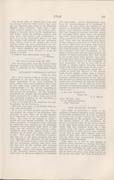
[p. 293]
The Pi-ute tribe of Indians have been and are charged with the above crime. Last August, my attention was called to the Mountain Meadow affair officially. Since then I have made diligent inquiry, got the written statements of persons living in the neighborhood, and finally visited the southern country; and now, after a full inquiry and examination, I deem it to be my imperative duty to say that the Indians had material aid and assistance from whites; and, in my opinion, the Pi-ute Indians would not have perpetrated the terrible massacre without such aid and assistance.
Mr. Jacob Hamblin and other, of Santa Clara, expressed much anxiety to bring the guilty to justice.
I remain, very respectfully, yours &c.
J. FORNEY.
The Deseret News, June 29, 1859
Sir:—Your letters of March 24 and April 8, addressed to me have been received. The grave importance of the facts contained in them, and in other communications from Utah by the same mail, required that the whole correspondence of the several departments with the officers of the Territory should be laid before the President. He has carefully considered the subject, and his opinion will be found expressed in a letter from me to the two Associate Justices of the Territory—a copy of which I send you.
You are clothed with the authority of a public accuser for the Territory. . . . .
But your duty must be performed with energy and impartiality. . . . .
It is only by these general remarks that I can express the wishes of the President with reference to your office; for at this distance it is impossible to give you detailed instructions. But there is one subject to which I would call your special attention. It appears that a company of emigrants from Arkansas to California was attacked at the Mountain Meadows, three hundred miles south of Salt Lake, and one hundred and nineteen cruelly murdered, none being spared except a few children, all of whom are under seven years of age. This crime, by whomsoever committed, was one of the most atrocious that has ever blackened the character of the human race. The Mormons blame it upon the Indians, and the accusation receives some color from the fact that all the children who survived the massacre were found in the possession of Indians. Others, and among them a judge of the Territory, declare their unhesitating belief that the Mormons themselves committed this foul murder. All the circumstances seem, from the correspondence, to be enveloped in mystery. In your letter the manner of the murder is described—showing that the emigrants were attacked within a corral which they had formed for defense, that they agreed to surrender their arms upon the promise that their lives should be spared, and after doing so were all of them treacherously butchered. Why does the information stop there? If that much be known how is it that we know no more? Who were the parties that received this surrender, and how is it proved? Cannot the Superintendent of Indian Affairs, or some one connected with that department of the public service trace back the children from the Indians in whose possession they were found to the corral where their parents were slain. It is said that some of the Mormon inhabitants of Utah have property of the emigrants in their possession. If this be true, will it not furnish a thread which, properly followed, would lead back to the scene of the crime?
These are mere suggestions, which are intended to show the interest of the government on the subject, rather than to instruct you in the performance of your duty. It is, however, confidently expected of you that you will intermit no watch, nor let any opportunity escape you of learning all that can be known upon this subject. If you shall be under the necessity of employing agents, such reasonable expenses as you may be put to on that account will be paid. . . . .
I am, very respectfully, Yours, &c., J. S. BLACK. ALEX. WILSON, ESQ., U. S. District Attorney, Utah Territory.
THE MILITARY ESCORT
Last week we published a notice of the response of General Johnston to the requisition of Governor Cumming for an escort to protect emigrants who propose leaving the Territory for California by the northern route, and by the special request of His Excellency the notice is continued, that all who have a desire to go, may have ample notice of the opportunity that now presents itself for a safe exodus from this quiet, peaceful Territory, and protection to their persons and property on the way to some other country more congenial to them than this is, or probably ever will be, with their preconceived notions of civilization and refinement.
That there is, or will be any danger of persons being molested on leaving the Territory we do not for a moment believe. If they owe no man anything and take away nothing that does not of right belong to them, they can go when and where they please, so far as the people who differ with them in opinion are
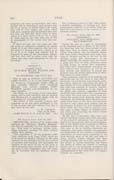
[p. 294]
concerned, the same as heretofore; and every facility will be extended to such persons that can be in reason, to enable them to go where they will be more happy, and better suited with their condition and associations than they are now, not that any desire them to leave unless it is their choice to do so, but to show by works that no one owes them any ill will in consequence of the course they are pursuing. . . . .
If there are any here who came out with the army as employees, teamsters in supply trains, or in any other capacity, that have not the means of leaving and have a desire to do so, it is to be hoped that charity will be extended to them by the government officers, and that they will be taken along with the others who may avail themselves of this opportunity.
NOTICE!!! LARGE SALE OF PUBLIC MULES, WAGONS AND HARNESS
On THURSDAY, 14th JULY next
Will be sold, at PUBLIC AUCTION, AT CAMP FLOYD, U. T., to the highest bidder, for Specie or Government Funds, 2000 or more excellent DRAFT AND SADDLE MULES, with several hundred ARMY WAGONS, together with HARNESS for the same complete.
The Mules are all young, sound, thoroughly broken, and in good condition; and the Wagons and Harness are in complete repair, with all equipments for immediate service.
The SALE of this valuable property will commence on the day above mentioned, in lots of one or more, and will continue from day to day, until all are sold.
G. H. CROSSMAN, Depy. Q. M. Genf.
CAMP FLOYD, U. T., June 22, 1859 16-4
The Deseret News, June 29, 1859
DEPARTURE.—Fifteen of the children that survived the "Mountain Meadow Massacre" left this city yesterday for Fort Smith, Arkansas. They went in carriages, having everything necessary provided for their comfort during their journey.
Two companies of the 2d dragoons under Capt. Anderson from Camp Floyd, which are to be joined by another company of the same regiment at Fort Bridger, having been ordered to Laramie and Kearney, will accompany the children as an escort as far as the posts to which they have been ordered; from thence to the place of their destination, they will doubtless be furnished with the necessary protection.
The troublesome years of 1857, 1858 caused a decided retardation of building and other improvements, and The News editor voices the relief felt, and reports on the renewal of construction activity.
The Deseret News, July 13, 1859
(EDITORIAL) BUILDING AND IMPROVING RE-COMMENCED
During the last two years, in consequence of the unsettled state of affairs in this Territry, there has been less improvements of any kind made, than in former years since these valleys were settled, and the desolate wastes that were before everywhere seen, have been made to "blossom and bud as the rose" by the untiring energy and perseverance of the Saints. Although the people have not ceased to plant they have in many instances ceased to build houses, to extend their settlements and make other improvements necessary for their comfort and enjoyment, as well as for their security and protection in person and property from the lawless aggressions to which they have ever been subject.
This temporary cessation from building and improving was not the result of fear, that if the houses were built and improvements made, the owners might not long enjoy the labor of their hands, for every genuine Saint will plant and build and continue to improve, beautify and adorn his possessions to the extent of his ability and capacity, regardless of what the future may bring forth; but circumstances over which they have had no control have prevented the people from following their usual avocations, and although there has been no cessation from labor or toil, their time has been devoted to other duties more arduous and the performance of labors far less desirable than those which they have had to perform since they came to these valleys, in building towns and cities, and converting the desert wastes into fruitful fields.
In this city in particular there have been but few buildings erected since 1856, and many of the primitive habitations have during this time so far decayed that they are untenantable. But of late things begin to assume a different appearance from what they have for a long time past, so far as building operations are concerned, and quite extensive arrangements are being made for the erection of commodious habitations in every ward, especially in the more thriving parts of the city, and loads of stone, adobies, lumber, shingles and other building materials are seen daily passing thro' the streets in various directions, and before the return of winter the number of dwelling houses will be very materially increased, and many that were in an unfinished state at the commencement of the "Utah War" will unquestionably be completed. . . . .

[p. 295]
Improvements are being made in all the towns and cities in this part of the Territory, and several new settlements have been made this season and more are in contemplation, showing conclusively that the people are not looking for the end of the world just yet, and that they have not forgotten, that "the Lord helps those that help themselves."
The Deseret News, July 20, 1859
G. S. L. City, July 8, 1859.
EDITOR DESERET NEWS—DEAR SIR:—. . . .Two new settlements have been formed in San Pete county this season. One about twenty-five miles east of north from Manti on Pleasant creek, called I believe Mt. Pleasant. They have about one thousand acres of wheat growing. There is in that vicinity an abundance of wood, water, stone and timber, in fact every facility for an extensive settlement. The people were living in wagons and brush shanties, but had commenced a stone wall four feet thick at the bottom, which when completed is designed to be twelve feet high and two feet thick at the top, and to enclose six acres of ground, to be finished by the 24th inst. Within that enclosure they purpose building their houses, and when that is done I think their families will be secure from Indian depredations.
The other new settlement lies about ten miles south of west from Mt. Pleasant, near the Sanpitch river, on the direct route from Salt Creek to Manti, and is called Moroni. They have sown about three hundred acres of wheat. They have also laid off a city and are building on their city lots instead of forting in. The facilities there are abundant for a large settlement. . . . .
In haste, I am your servant and friend, J. W. CUMMINGS.
The Deseret News, July 27, 1859
ARRIVAL OF MERCHANDIZE.—Merchant trains have been coming in so thick and fast of late that their arrival has almost ceased to attract attention, and if there is not some depreciation in the price of goods offered for sale in this market ere long, there is more money in the territory and a greater demand for merchandize than has been seen of late. Among the trains that have arrived lately is that of Mr. Randall, freighter for Livingston, Bell & Co., consisting of some fifty wagons and about one hundred and fifty yoke of oxen. There are many other trains on the road from the Missouri River, some freighted with goods for the regular merchants, and others for transient traders, who are coming out here to pick up some of Uncle Sam's cash, which they suppose will be scattered about profusely. If the latter succeed in gathering many of the golden eagles that are uncaged, they will have to be very expert and sell their trappings at more reasonable prices, than have been demanded by dealers since the "war."
THE SALE of Government mules, wagons, etc., at Camp Floyd, we understand has closed. It is reported that the government property, especially the mules, brought higher prices than ever known before at similar sales, most of the animals having been purchased by citizens, and not by speculators as some anticipated.
It is also reported that there will be another sale there sometime in September next, it being reported that the number of teams at that post are to be reduced to some forty or fifty.
If this be so, the army in Utah will thereafter be in a poor condition to enter at once upon an Indian war, if one should occur.